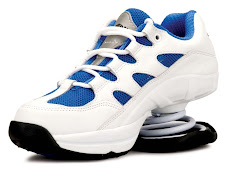Part 3 of 3 - Best times to Boost your energy and brain power
 Head to bed at least 3 hours after dinner
Head to bed at least 3 hours after dinnerIt ensures more efficient digestion and, because eating too much food before sleeping can cause heartburn, deeper sleep, says Foresman. If you want a cocktail, have it with dinner to give your body plenty of time to metabolize the alcohol. Even if a drink makes you feel sleepy at first, just one nightcap can cause you to wake up more frequently during the night, finds a study from Wake Forest University. Imbibing too late in the evening upsets normal brain patterns, delaying REM (dream) sleep. Later, when REM rebounds, you'll be more likely to have startling, vivid, or violent dreams, which can also disturb sleep, says Joyce A. Walsleben, PhD, an associate professor at New York University's Sleep Disorders Center and coauthor of A Woman's Guide to Sleep.
Follow a sleep schedule
Several studies suggest that obeying your alarm clock can help relieve daytime fatigue. Sleep researchers are finding that people who get at least 7 hours of sleep a night are much less likely to be obese—and weight gain can act as an energy drain. Going to bed and getting up at the same time every day also keeps your biological clock on schedule. This clock, a cluster of 20,000 neurons in your brain, regulates your body's temperature, hormones, blood pressure, and other important functions. Throw it off-kilter and you could face serious health problems: Studies on night-shift workers suggest that people with irregular sleep habits have an increased risk of digestive troubles, emotional and mental problems, heart disease, and cancer, says Foresman.
Take vacation in late February or early March
And head outdoors. By March, as many as 50% of people not living in the Sun Belt will already have had a few months of winter-induced mood dips, says Matthew Edlund, MD, director of the Center for Circadian Medicine in Sarasota, FL, and author of The Body Clock Advantage. March is also the month when the more extreme psychological slump known as seasonal affective disorder, or SAD, can become overwhelming for the estimated 10 million sufferers in this country.
By taking a break somewhere sunny, you can "reverse your emotional course," reports Edlund. Warmth isn't required to garner a mood boost: Hitting the ski slopes can be as uplifting as heading south. The key is to use the great outdoors—plan an active vacation that maximizes your exposure to daylight.
Take a nap at 2 PM
The dip in body temperature that helps ease you into sleep at night also occurs midday, which is why afternoons can be so unproductive. But if you can catch a catnap around 2 PM (the slump usually hits between 1 and 3 PM), it should boost your alertness for several hours. Ten minutes will do the trick—nod off for more than 20 and you may wake feeling groggy. If a nap is out of the question, eat plenty of protein at lunch, which will give you longer-lasting energy, says Christine Gerbstadt, MD, RD, a spokesperson for the National Dietetic Association. Mid-afternoon is also a good time for "strategic caffeine use," says Brian Foresman, DO, director of the Sleep Medicine and Circadian Biology Program at Indiana University School of Medicine. "If you don't exceed a cup or two per day, caffeine works phenomenally well at increasing your alertness." This should be your last cup of coffee for the day, though—any caffeine consumed within 7 hours of bedtime can disrupt your sleep.
Pay bills or do a crossword between 10 and 11 AM or 8 and 9 PM
“According to our circadian rhythms, that's when we're maximally alert," says Michael Thorpy, MD, director of the Sleep-Wake Disorders Center at Montefiore Medical Center in the Bronx. Try not to waste a minute—the brain boost lasts only for about an hour.
That concludes our Healthiest Times to Do Everything article. Hope you enjoyed them!
Courtesy: Prevention.com

1 comment:
your sleeping comments will really help me. i hope i do not go sleeping forever and forget to get
up at all.
sagar
Cash Online Get Easy cash at your door step
Post a Comment